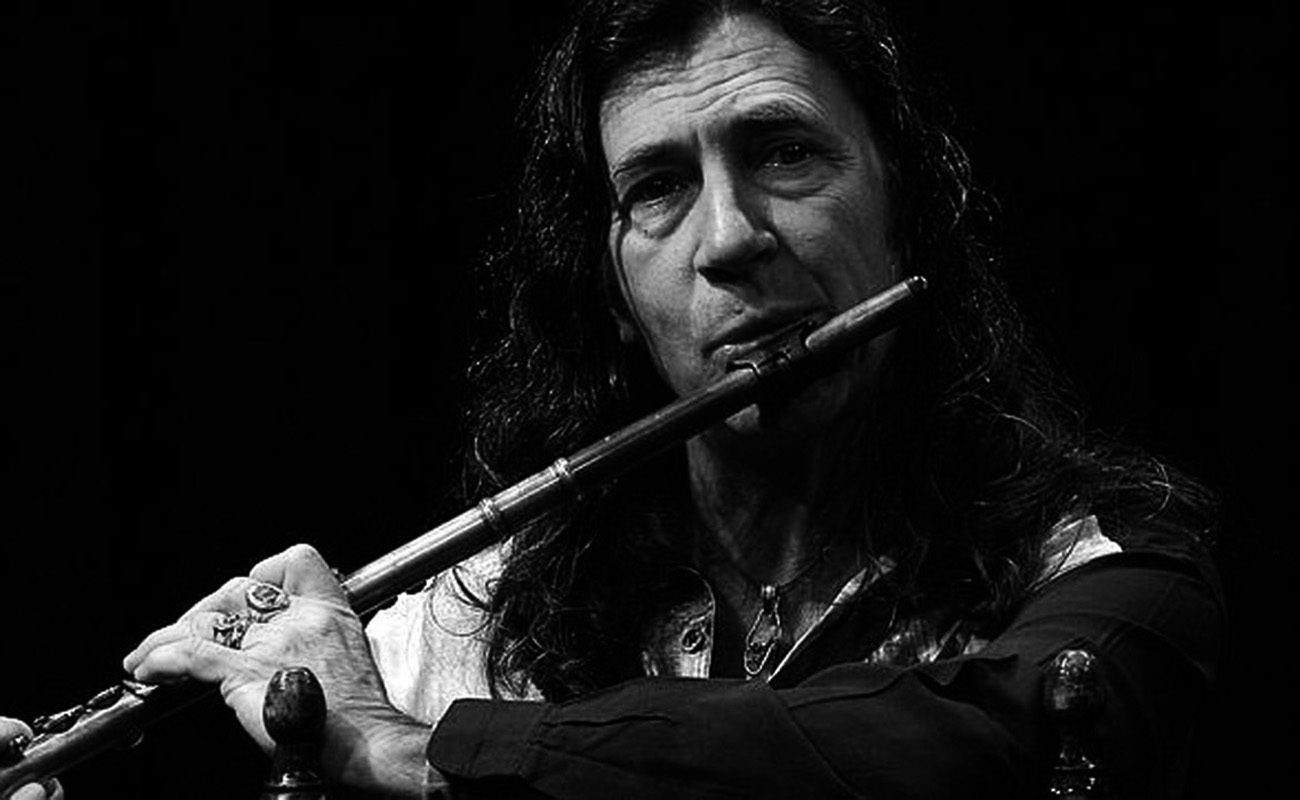Jorge Pardo: pure and modern
My opinion is that Jorge Pardo is much more “pure”, as a musician and as a flamenco, than those who think they’re “pure” because they sing the mythical caña de El Fillo, or the hypothetical soleá de la Adonda.

The Spanish Ministry of Culture has awarded Jorge Pardo the National Prize of Contemporary Music, a well-deserved accolade, as he’s one of the best musicians in our country. It’s a prize that we flamencos have celebrated in a very special way, even as some still think that Pardo isn’t a flamenco, just a musician, a flautist and a saxophonist. One day, talking with Paco de Lucía, in one of the few times I had the opportunity to chat with him about flamenco, we brought up Jorge Pardo, with whom the genius got along well, both musically and personally. He said something beautiful about him: “Jorge is pure and modern”. As you all know, Paco had lot of issues with the “purity” thing, and it was a topic he disliked and which he didn’t quite understand.
My opinion is that Jorge Pardo is much more “pure”, as a musician and as a flamenco, than those who think they’re “pure” because they sing the mythical caña de El Fillo, or the hypothetical soleá de la Adonda. What Paco tried to say is that each generation has had their own concept of flamenco “purity”. There are young flamencos who, in order to be considered “pure”, not only shamelessly fake their voices, but even try to make “pure” faces, overacting in a particular way, making unnecessary efforts with horror-movie-like gestures. Then there are who those who argue that non-gypsies can’t be pure, as if purity was something unique to gypsy artists. Well, you see, the prized artist isn’t a gypsy, and he isn’t from Jerez or Triana either, but from Madrid, just as Ramón Montoya, Angelillo or La Chata, sister of another flamenco from Madrid, Joaquín El Feo. Jorge Pardo was already a great musician when he started collaborating with Paco de Lucía, with whom he discovered not only the wonderful world of flamenco, but also the world of musical freedom. I remember that three or four years ago, Pardo gave a concert at the castle in Alcalá de Guadaíra, hometown of Joaquín el de la Paula and of some of his family, such as his son Enriquillo and his nephew Manolito de María, all of them good cantaores and performers of the soleá alcalareña. It was summertime and the night was breathtaking, with a sky full of stars. Pardo gave us incredible and greatly inspired soleá melodies. At the castle there was a descendant of Paula, I think his great-grandson, who had a strong physical resemblance to that cantaor of the old days. I noticed he was moved to tears, and I asked him why, and this was his answer: “If Joaquin were alive today and he played the saxophone, he would play it like that, he would be just like Jorge Pardo”.
The thing is that flamenco is more timeless than in seems. That’s why a soleá by Tomás Pavón or a seguiriya by Juan Mojama doesn’t sound “old” to our ears. Jorge Pardo is a musician, a great musician, playing jazz and flamenco, mixing, fusing, toying with rythms and beats, improvising, enjoying, suffering, feeling, laughing, creating. The American trumpeter, composer and lover of flamenco Miles Davis always was clear that, whatever he played, it was “music”. He said so when he came to Seville and someone asked him if what he had just played was jazz or flamenco. “No, it’s just music” he replied. He had played a soleá which certainly was very much like the one played by Jorge Pardo in the castle of Alcalá, the one which had moved the great-granson of Joaquín el de la Paula to tears. I always feel moved when I listen to Jorge Pardo, be it flamenco or jazz, and I never ask myself what is what he played. But I always, always remember what Paco de Lucia told me, that Jorge was pure and modern. Congratulations, genius.




